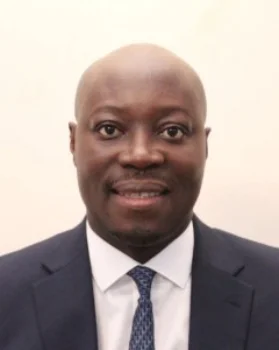
The government will take bold and forward-looking steps to ensure that Ghana’s petroleum wealth delivers greater value for its people, Finance Minister, Dr Cassiel Ato Forson, has said.
To this end, he said an additional qualifying instrument for the investment of the petroleum resources of the Ghana Petroleum Funds (GPFs) would be introduced. The move, he noted, was to ensure that a portion of the GPFs was invested in the domestic market, particularly in commercially viable energy infrastructure capable of powering the country’s industrial and economic transformation.
He disclosed this in Parliament last Friday, when he presented the Government’s 2026 Budget and Economic Policy for consideration and approval. The budget is on the theme, “Resetting for Growth, Jobs and Economic Transformation.”
In line with Section 27(2) of the Petroleum Revenue Management Act, 2011 (Act 815), he explained that the Investment Advisory Committee had advised the Ministry of Finance to designate additional qualifying instruments for the investment of the GPFs.
However, under the current legal framework, investments from the Funds are restricted to low-risk, foreign-denominated securities issued by entities outside Ghana, including the IMF, World Bank and other top-rated sovereigns. This conservative investment approach, he indicated, had delivered minimal returns.
Since the establishment of the Funds in 2011, total reserves have accumulated to US$1.46 billion, yet. Yet, only 94.9 million has been earned, an average return of just one per cent over the last 13 years.
“Mr Speaker, the time has come to make our oil wealth work harder for Ghanaians,” the Minister stressed.
The designation of additional qualifying instruments, he said, would allow part of the Funds to be channelled into commercially viable domestic energy projects. This is expected to diversify the investment portfolio, improve long-term returns, and align the Funds more closely with the country’s development and industrialisation priorities.
According to him, the energy sector remained central to Ghana’s transformation agenda, powering industries, homes, and the 24-Hour Economy Programme. Directing a portion of the oil savings into strategic projects such as thermal plants and gas processing facilities would not only improve the profitability of the Funds, but also help lower the cost of energy, enhance reliability, and strengthen industrial competitiveness.
Describing the initiative as a “win-win” for the nation, Dr Forson emphasised that the reform would both protect and grow the value of the GPFs while unlocking financing for projects that create jobs, expand local industries and reinforce energy security.
He added that global experience showed the effectiveness of such an approach, noting that more than a quarter of sovereign wealth funds worldwide now invest directly in infrastructure, innovation and strategic industries. He referenced Saudi Arabia’s Public Investment Fund, Nigeria’s Sovereign Investment Authority, and the UAE’s Mubadala and Masdar Funds as examples of vehicles driving transformational growth in their respective economies.
The Minister assured Parliament that the policy shift would not impose any cost on the national budget. Rather, it would create fiscal space by improving returns on savings and leveraging domestic capital for high-impact development initiatives.
